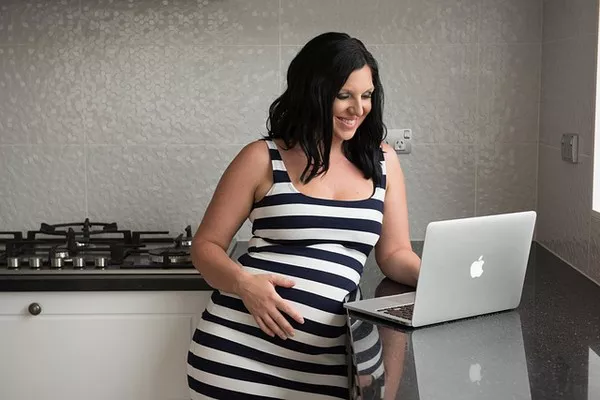As women delay childbirth for various reasons, the age at which many choose to start a family has shifted, with an increasing number opting for pregnancy after the age of 35. While modern society has provided women with the freedom to pursue education and career goals before starting a family, it’s essential to acknowledge the biological complexities that accompany delayed pregnancies. In this comprehensive exploration, we delve into the reasons why getting pregnant after the age of 35 can be challenging, considering both biological and lifestyle factors.
Biological Factors
1. Declining Egg Quality and Quantity:
As women age, the quantity and quality of their eggs decline. Women are born with a finite number of eggs, and as they age, the remaining eggs may have a higher likelihood of chromosomal abnormalities, leading to an increased risk of miscarriage and developmental issues in the offspring.
2. Decreased Ovarian Reserve:
Ovarian reserve refers to the number of eggs a woman has in her ovaries. After the age of 35, ovarian reserve starts to decline more rapidly, reducing the chances of successful conception. Fertility specialists often assess ovarian reserve through tests like Anti-Müllerian Hormone (AMH) levels.
3. Irregular Menstrual Cycles:
Women over 35 may experience irregular menstrual cycles, which can complicate the timing of ovulation. Predicting the fertile window becomes more challenging, making conception less likely.
4. Increased Risk of Medical Conditions:
Advancing maternal age is associated with a higher risk of medical conditions that can affect fertility, such as polycystic ovary syndrome (PCOS), endometriosis, and fibroids.
5. Higher Incidence of Chromosomal Abnormalities:
The risk of chromosomal abnormalities, particularly Down syndrome, increases with maternal age. While the overall risk is still relatively low, it becomes a significant consideration for women over 35.
Lifestyle Factors
6. Delayed Childbearing:
The decision to delay childbearing for educational or career pursuits is a common lifestyle choice. However, this delay can inadvertently reduce the window of optimal fertility, making conception more challenging.
7. Impact of Stress:
High levels of stress can negatively impact reproductive hormones and ovulatory function. Women pursuing demanding careers or dealing with chronic stress may experience disruptions in their menstrual cycles, affecting fertility.
8. Effects of Environmental Factors:
Environmental factors, such as exposure to pollutants and toxins, can contribute to fertility issues. Prolonged exposure to certain substances in the workplace or home environment may have adverse effects on reproductive health.
9. Unhealthy Lifestyle Choices:
Poor lifestyle habits, including smoking, excessive alcohol consumption, and a lack of physical activity, can impact fertility. Adopting a healthy lifestyle is crucial for optimizing fertility, especially in women over 35.
Medical Interventions
10. Challenges with Assisted Reproductive Technologies (ART):
While assisted reproductive technologies, such as in vitro fertilization (IVF), can be effective in overcoming fertility challenges, success rates tend to decline with maternal age. The quality of eggs plays a significant role in the success of these interventions.
11. Increased Risk of Complications:
Pregnancy after 35 is associated with a higher risk of complications, including gestational diabetes, hypertension, and preterm birth. These factors can impact both maternal and fetal health.
12. Likelihood of Multiple Pregnancies:
Fertility treatments may increase the likelihood of multiple pregnancies, which come with their own set of risks and challenges, including premature birth and low birth weight.
See Also: 7 Reasons You’re Having Difficulty Conceiving
Strategies for Enhancing Fertility After 35
Preconception Health:
Women planning to conceive after 35 should prioritize preconception health. This includes maintaining a healthy weight, adopting a balanced diet, exercising regularly, and managing stress.
Regular Monitoring and Testing:
Regular monitoring of reproductive health through fertility assessments and tests can provide valuable insights into ovarian reserve and hormonal balance. Early detection of any issues allows for timely intervention.
Timely Consultation with Fertility Specialists:
If conception does not occur within a reasonable timeframe, seeking consultation with a fertility specialist is advisable. Fertility specialists can conduct comprehensive evaluations and recommend appropriate interventions.
Consideration of Egg Freezing:
For women who anticipate delayed childbearing but wish to preserve their fertility, egg freezing is a viable option. This involves retrieving and freezing eggs for future use, providing a potential solution to age-related fertility decline.
Conclusion
While getting pregnant after the age of 35 poses certain challenges, it’s important to recognize that many women in this age group have healthy pregnancies and deliver healthy babies. Understanding the biological and lifestyle factors that can affect fertility empowers women to make informed choices about family planning. Whether through natural conception, assisted reproductive technologies, or alternative family-building options, the journey to parenthood after 35 is unique for each individual. By prioritizing reproductive health, adopting a healthy lifestyle, and seeking timely medical advice, women can navigate the complexities of fertility and pursue their family-building goals with confidence.


